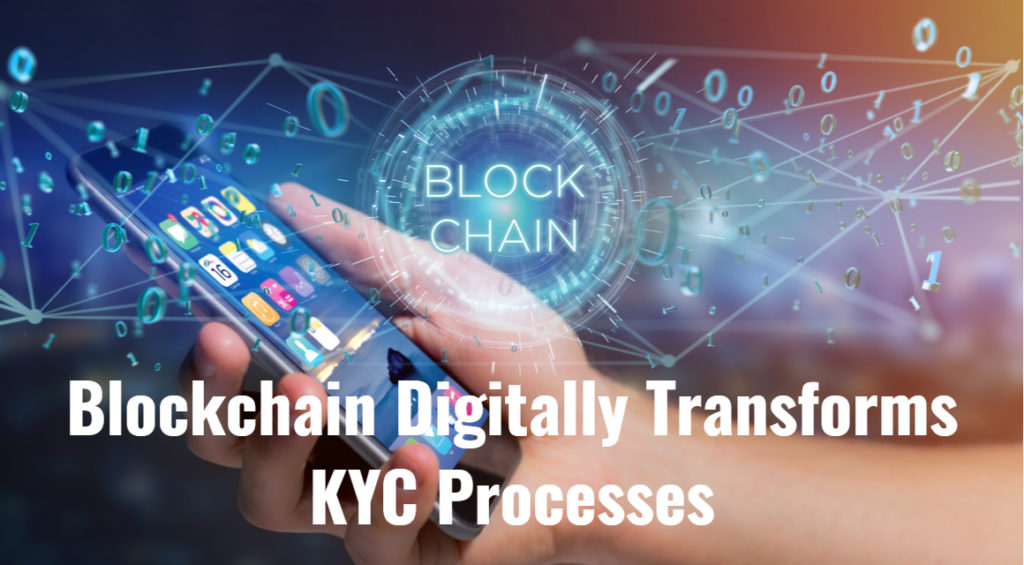The word blockchain digitally must have crossed your mind – or your inattentive glances – at least in recent months. Especially if you follow the goings-on in the business world. Probably you still don’t get what the fuss is about. With the rising tide of digital transformation around the world, technology is more central to businesses than ever. In fact, the demand for blockchain development services is emerging across industries. And cannot afford to not learn the basics about it anymore.
In this blog post, we’ll explain what you need to know about blockchain digitally, focusing on its role in dealing with the KYC nuances. We’ll lay out strategies about how you could remodel your KYC system using blockchain. Read on to use the blockchain to boost your business.
What is Blockchain?
A blockchain is a new kind of database that has increasingly become popular for storing digital information securely. Companies and governments will spend over $2.1 billion on blockchains in the coming years, according to an analysis by International Data Corporation.
You must have heard about the blockchain in relation to Bitcoin. Bitcoin is, indeed, closely related to blockchain technology. The first blockchain was the database on which every Bitcoin transaction was stored. If you’re thinking of blockchain enterprise development, you must understand work — and why it’s called a blockchain.
Why Call it a Blockchain?
The term blockchain was not used in the original documents describing the digital currency Bitcoin. It eventually got the name because all the transactions coming on the network were grouped into “blocks” of data. Then they were “chained” together using sophisticated mathematical combinations.
This information storage technique makes it virtually impossible to go back and rewrite the older records. Tech experts argue that this design predates Bitcoin and that Bitcoin just brought it to the fore. Now the rapidly evolving blockchain development services are making it even more prominent. But how does this help solve issues surrounding the KFY process in financial institutions? Let’s find out.
The Problems with a Traditional KYC Process
Financial institutions, large and small alike, maintain a KYC process. Short for Know Your Customer, it involves collecting customers’ information, keeping them up-to-date, and avoiding fraud among other things. However, with banks and financial service companies becoming increasingly digital, the legacy process reduces business productivity.
Usually, a KYC system works in silos, in a centralized environment. Such environments prompt risks of fraud due to data misidentification, lack of real-time customer tracking, slower information processing, and potential identity thefts. The good news is all these could be addressed with the right blockchain enterprise development strategy.
How Does KYC Blockchain Work?
In a blockchain-based KYC system, customer information management would be fully decentralized. Access to information would be based on customers’ consent. Below are the areas that a blockchain-enabled KYC can reshape.
Decentralized Data Collection
With a blockchain-based KYC system, you can quickly streamline the customer verification and data authentication processes. Streamlining a centralized system is harder since it works in silos. When you choose blockchain digitally service to build a KYC system, customers’ data is available in a decentralized system. A blockchain KYC will also offer better data security by ensuring authorized access.
Automated Data Collection & Update
Even a traditional KYC is supposed to update the customer. With blockchain and automation, it becomes incredibly seamless. You could easily enable automated and real-time updates. Besides, you could enhance workflow routing, process streamlining, and reduce manual monitoring, among other things.
Enhanced Operations Management
Efficient operations management is crucial to success in the competitive financial services industry. The blockchain allows you to automate repetitive tasks like data collection, updates, and customer verification. It enables your team to invest time that needs more humane intelligence. Hence, blockchain-powered automation not just improves operational efficiency but also service quality.
Better Authentication & Fraud Prevention
Using blockchain digitally, you could create a cryptographic verification process for customers’ transactions. It dramatically enhances data protection compliance and fraud prevention. With skyrocketing digital banking services, such measures have become more crucial than ever. The secure and highly evolved capabilities of a blockchain substantially increase your customers’ data security.
Wrapping Up
Fintech experts believe blockchain dominance will rapidly in the post-pandemic world. With top tech founders like Elon Mask enthusiastically promoting Bitcoin, the blockchain has already become mainstream. Besides, countries like China are introducing their own “national digital currency.” The Indian government, too, has planned to launch a blockchain-based digital currency. This trend will grow over time.
At OrangeMantra, we’re enthusiastic about implementing the most evolved digital technologies to boost clients’ business. Being an award-winning tech team, we’re poised to build deeply customized blockchain solutions for your business.
Frequently Asked Questions
Q. What is Blockchain?
Blockchain is a digital ledger or a distributed database. It is an open-source technology that is based on peer-to-peer (P2P) topology. It allows data to be stored globally on thousands of servers, making information immutable and accessible to anyone in real-time. As Blockchain is a distributed ledger, there will be no control or central authority of records stored.
Q. How does blockchain benefit businesses?
Blockchain offers valuable capabilities to enterprises transacting with one another. Its distributed ledger-based structure facilitates a host of business benefits. Blockchain solutions help businesses improve efficiency, build trust, and scale per requirements, among other advantages.
Q. What is a Hyperledger?
Hyperledger is an open-source community focused on developing solutions, tools, and libraries for enterprise-grade blockchain technology deployment. Blockchain solutions rely on a distributed ledger.
Q. How much does it cost to build a blockchain solution?
The costs of developing a blockchain system vary widely based on your requirements. There’s no average cost of blockchain development. Hire blockchain developers from OrangeMantra to avail renowned blockchain development services at a market-best price.
